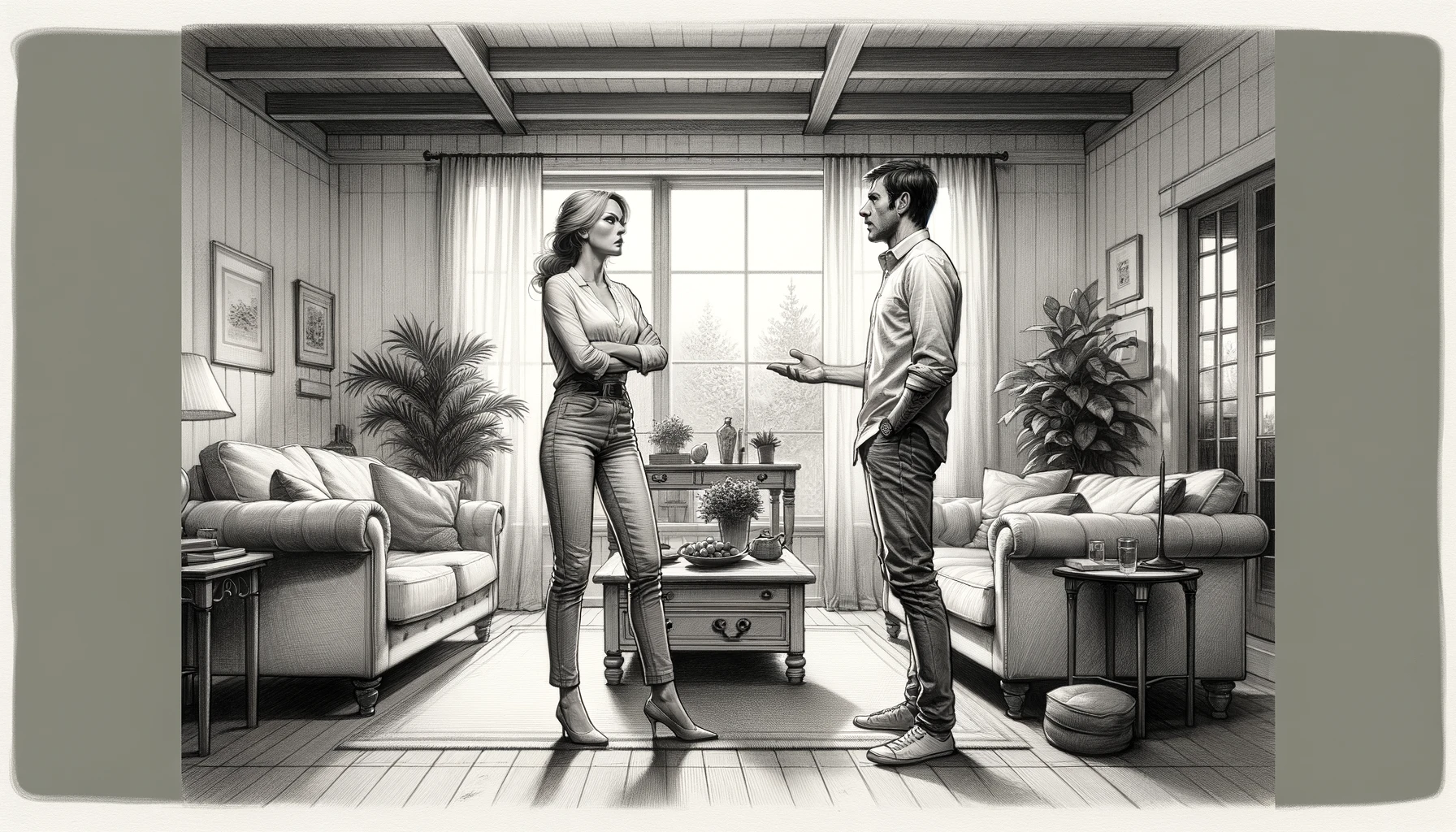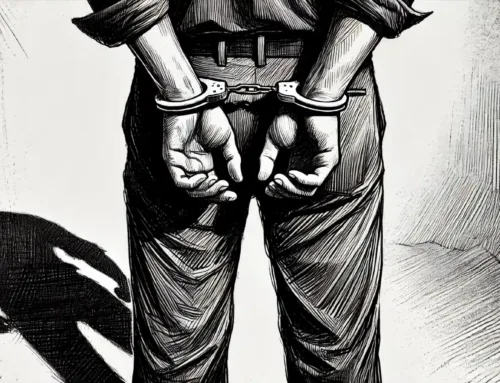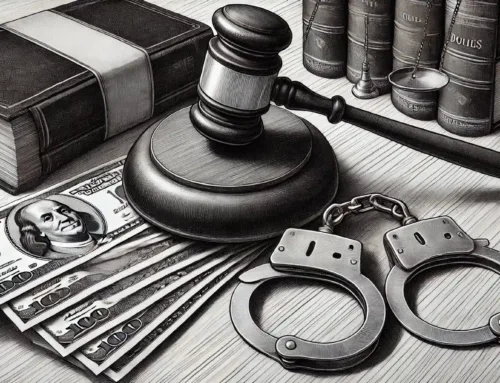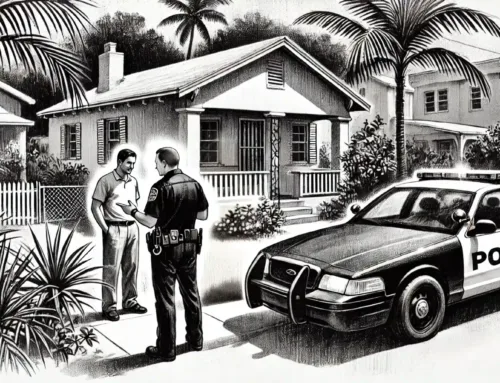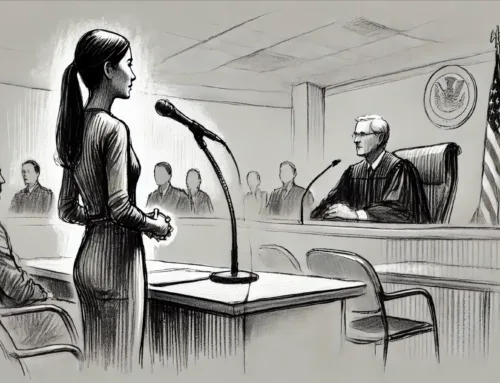Women Can Be the Aggressors in Domestic Violence Cases
You’ve probably heard that domestic violence is primarily committed by men against women. While that may be true statistically, the numbers don’t tell the whole story. Too often, heterosexual relationships marred by violence automatically peg the man as the perpetrator and the woman as the victim. However, modern research shows domestic violence occurs in all kinds of relationships, and women can be aggressors as well.
As your Miami criminal defense attorneys, we believe everyone deserves fair judgment regardless of gender. We also believe education can prevent future violence. We want to have an open discussion about the myths and facts around intimate partner violence because assumptions about these situations can ruin lives. A false accusation can land an innocent person in jail while allowing the real aggressor to walk free. A lack of awareness often bars victims of both genders from getting help.
Domestic Violence is Not Just a “Women’s Issue”
When we think about domestic violence, we often envision angry, abusive men lashing out at their frightened wives or girlfriends. Movies, TV crime shows, and other media typically portray these situations from the female perspective only. Consequently, it’s easy to assume domestic violence is primarily a women’s issue rather than one that impacts both genders.
However, multiple studies, including results from Centers for Disease Control and Prevention (CDC) surveys, show domestic violence is prevalent across all relationship types. Up to 44% of lesbians, 37% of bisexual women, 29% of heterosexual women, 26% of gay men, 37% of bisexual men, and 29% of heterosexual men reported being victims of intimate partner violence in their lifetime ([1]).
These statistics highlight that people of all genders and sexual orientations can be victims or perpetrators of violence by intimate partners. So why does the stereotype of male aggressors and female victims persist?
Gender Bias Clouds Judgment of Domestic Violence Cases
There are plenty of reasons why heterosexual men often take the blame as aggressors when a fight turns violent with their female partners. These include:
- Police bias. Studies show police view domestic violence calls differently depending on which partner made the call. Over 90% of the time, when a woman calls for intervention, police assume the man initiated the violence ([2]). But when a man is the caller, blame assignment is more equal between the partners.
- Differing types of aggression. Research reveals women are more likely to engage in verbal or psychological abuse as well as act violently in self-defense. In contrast, men tend toward extreme aggression and cause more physical injury on average ([3]). So when police respond, they may see those injuries as evidence of male-perpetrated violence.
- Stigma and shame. Social stigmas make men much less likely to report being abused by female partners. Many fear disbelief, judgment, or embarrassment in coming forward as victims ([4]). The lack of male reporting feeds the assumption that domestic violence is primarily a women’s issue.
- Past experience. If responding officers have a traumatic past experience with an extremely violent male offender, they may approach calls with a biased perspective. Their emotions could cloud better judgment of the situation at hand.
The key point from these reasons is that gender bias continues to be a significant issue in assumptions made about domestic violence cases. Rather than basing judgment on stereotypes, the particular details of each situation need to be weighed carefully. And in cases where a female partner was clearly the violent aggressor, that needs to be recognized as well.
Female Aggressors Can Cause Serious Harm
Make no mistake – although men commit more extreme acts of violence statistically, women can also be dangerous aggressors in abusive relationships. Female abusers who feel threatened or want control may act out violently against their male partners. And they can cause very serious harm with weapons, objects, or their own bodies. Some examples of violence women may use against their partners include:
- Pushing, punching, slapping, kicking
- Scratching that draws blood
- Biting that breaks the skin
- Hitting or stabbing with objects
- Throwing dangerous items
- Choking, burning, strangulation
- Using guns or knives
The results of female-on-male violence can sometimes be worse than injuries from male aggressors. For example, studies show female abusers target the face and neck areas 80% of the time ([5]). Consequently, the visibility of cuts and bruises increases suspicion and legal punishment if police intervention occurs. Serious injury and even death outcomes are not uncommon with violent female aggressors. Social stigmas prevent many men from even reporting such abuse, however.
False Accusations Impact the Innocent
Even more troubling is when conflict arises, an abusive woman attempts to shield herself from punishment by being the first to call the police and file a false report. They may claim the man attempted to assault or strangle them, and their frightened emotional state lends credibility. Oftentimes, police tend to dismiss anything the man says in his defense.
Not only is a false domestic violence accusation itself a crime, but it also has devastating impacts on the accused. Arrest and criminal charges on their records can ruin reputations, end careers, and tear families apart. Simply battling the accusations in criminal court can bankrupt an innocent defendant in staggering legal fees.
These unjust results further demonstrate why gender bias is so dangerous in domestic violence intervention. Police and the justice system should objectively weigh evidence case-by-case rather than automatically favoring one gender’s account. And both male and female victims of violence by intimate partners need their stories heard without judgment or assumption.
What To Do If You’re the Victim as a Man
If you find yourself the victim of domestic violence by a female partner, it’s essential to discreetly take steps to document evidence and get help right away. This includes:
- Taking photos of injuries inflicted by your partner for documentation
- Getting promptly examined and treated by a doctor
- Calling 911 immediately if fearful for your safety ([6])
- Consulting our office or a domestic violence hotline for guidance on next legal steps like filing a restraining order
- Securing alternative lodging if needing to leave a shared residence
Having an advocate and legal guidance can help male victims safely navigate out of dangerous domestic situations. It also helps counter gender biases by building an evidence-based case against a violent offender.
Abuse Can Happen to Anyone: Break the Stereotypes
Domestic violence continues to impact American homes today severely. Yet biased assumptions still lean toward pegging the man as the aggressor by default. Instead, your criminal defense team believes that judgment should remain neutral until all case facts are weighed without gender influence. Whether lesbian, gay, heterosexual, or some other orientation – abuse happens across all kinds of intimate relationships. No victim’s gender or story deserves priority over another.
Contact an Experienced Domestic Violence Lawyer
If you are a man falsely accused of domestic violence, it is crucial that you promptly secure legal representation to defend yourself. A knowledgeable criminal defense lawyer can carefully evaluate the accusations against you and build a strong counter-case highlighting contradictory evidence. They understand how to stand up to gender stereotypes that too often taint perceptions in these situations. An attorney can also advise you on practical steps like documenting your injuries, securing witnesses to events, and avoiding actions that could wrongly implicate you further. While terrifying and unjust, remaining calm and getting experienced counsel on your side offers the best chance at preventing wrongful conviction and sentence. False accusations cut deeply, but the truth still matters in our justice system when actively defended. If a partner has wrongly accused you, share your full story with a skilled legal advocate today.
CALL US NOW for a CONFIDENTIAL INITIAL CONSULTATION at (305) 538-4545, or take a moment to fill out our confidential and secure intake form.* The additional details you provide will greatly assist us in responding to your inquiry.
*Due to the large number of people who contact our law office requesting our assistance, it is strongly suggested that you take the time to provide us with specific details regarding your case by filling out our confidential and secure intake form. The additional details you provide will greatly assist us in responding to your inquiry promptly and appropriately.
[1] https://www.cdc.gov/violenceprevention/intimatepartnerviolence/men-ipvsvandstalking.html
[2] https://www.ncbi.nlm.nih.gov/pmc/articles/PMC3175099/
[3] https://www.ncbi.nlm.nih.gov/pmc/articles/PMC2968709/
[4] https://www.theguardian.com/society/2010/sep/05/men-victims-domestic-violence
[5] https://www.ncbi.nlm.nih.gov/pmc/articles/PMC2968709/
THERE ARE THOUSANDS OF LAW FIRMS AND ATTORNEYS IN SOUTH FLORIDA. ALWAYS INVESTIGATE A LAWYER’S QUALIFICATIONS AND EXPERIENCE BEFORE MAKING A DECISION ON HIRING A CRIMINAL DEFENSE ATTORNEY ATTORNEY FOR YOUR MIAMI-DADE COUNTY CASE




